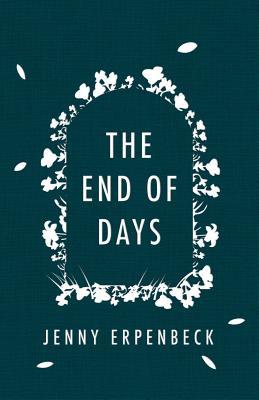“As you get older you no longer see people around you, only moving ruins. Again and again the dead find back doors or kitchen windows through which to slip inside and haunt younger flesh with their convulsions. People are draughty creatures. We have memories to tame the dead until they hang still in our neurons as foetuses strangled by the umbilical cord. I fold their fingers and close their eyes, and if they sometimes sit up under their sheets I know it’s enzymes or acids strumming their tendons. Their true resurrection lies elsewhere.”
Helena Demont, the aged narrator of While the Gods Were Sleeping by Dutch-language Belgian author Erwin Mortier, is a frail bodied but sharp-witted woman intent on employing the only weapon she has ever trusted, language, to rally her ghosts. Tended daily by her Moroccan carer, she fills notebook after notebook with her thoughts and reflections about the power and limitations of words, and the distortions and intensity of the memories that haunt us. She is, even at her advanced age, struggling to reconcile the fraught relationship with her mother whose voice still admonishes her in her quiet moments, come to terms with her envy of the freedom and detachment that her gay older brother Edgard seemed to enjoy, and sculpt into living memory the body and spirit of her long deceased beloved husband.
 At the centre of this intensely powerful novel is Helena’s vivid account of her experiences in Flanders during the First World War. The breakout of war happens to coincide with the beginning of her bourgeois family’s annual summer pilgrimage from their home in Belgium across the border to her uncle’s farm in France. As a result, she and her mother end up confined to the farm for the years of the war, separated from her father who is unable to join them and her brother who volunteers and is sent off to the front. She sees much of the war from a distance, with a mixture of awe, adolescent romance, and horror but it will stand as the pivotal experience in her long, long life.
At the centre of this intensely powerful novel is Helena’s vivid account of her experiences in Flanders during the First World War. The breakout of war happens to coincide with the beginning of her bourgeois family’s annual summer pilgrimage from their home in Belgium across the border to her uncle’s farm in France. As a result, she and her mother end up confined to the farm for the years of the war, separated from her father who is unable to join them and her brother who volunteers and is sent off to the front. She sees much of the war from a distance, with a mixture of awe, adolescent romance, and horror but it will stand as the pivotal experience in her long, long life.
While the Gods Were Sleeping is a not a plot driven novel, highly descriptive language is employed to evoke a mood, to harness an experience, to pull the reader in to a vortex which, in the end, is as powerful as quicksand. Lengthy sentences unwind across the page:
“When I was allowed by my uncle, my mother’s older brother, to use the telescope, which stood up in the attic under a tarpaulin, I could see in those clouds of dust, in places where the roads came up to the same height as the fields, lances reflecting the sunlight, rifle barrels as fine as needles gleaming above a mass of figures marching over the cobbles, or the bustling horses’ hooves of the cavalry, and that dust they dragged behind them like a threadbare veil.”
Some may find the long, reflective (dare I say Sebaldian) transgressions about writing, and the rejection of clear chronological storytelling disconcerting at the beginning, but Mortier employs language, as his narrator wishes she could, like a painter, building up layers, blending colours and textures to create a deeply human experience that pulls together clearly and beautifully in the closing chapters. Paul Vincent’s translation captures the poetic beauty of the language and manages to navigate the contrast between the wartime dialogue as remembered and the narrator’s very contemporary tone when she is reflecting on the nature of writing or complaining about the regrets and annoyances of her life in the present day.
In the end, this novel is a meditation on the way that we remember; how memories are evoked, stored, treasured, and released. In a particularly powerful passage, Helena is following her British photojournalist husband across a bleak ice covered Flemish landscape and decides to take a photograph of him, from behind, simply for her own keeping. When the film is later developed in their makeshift darkroom, corpses are revealed trapped just below the surface of the ice. An horrific image of the aftermath of war for certain, but also a striking metaphor for the way that memories resurface as we look back over time, how ghosts we thought long put to rest can continue to rise up and haunt us.
International Foreign Fiction Prize 2015: Several of the novels in this year’s long list visit the First World War. This is another equally impressive yet unique approach. I would be happy to see this novel on the short list and I know that I will be seeking out Mortier’s earlier work.











